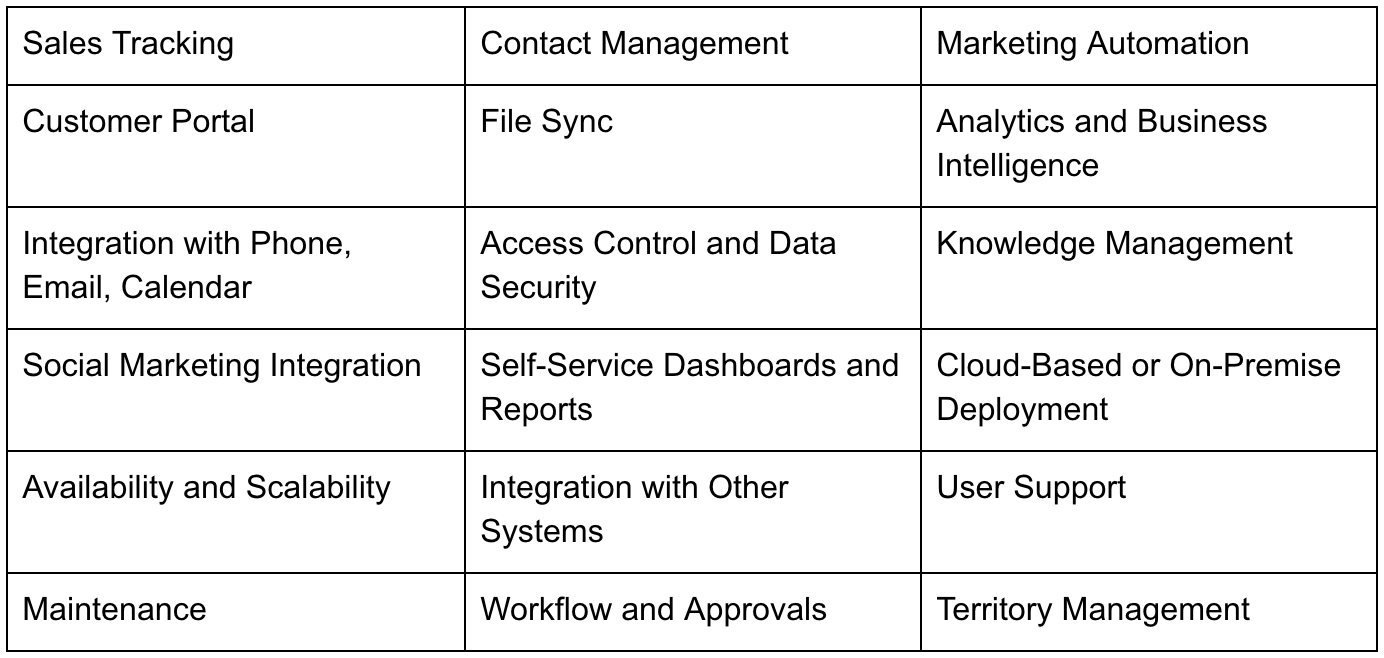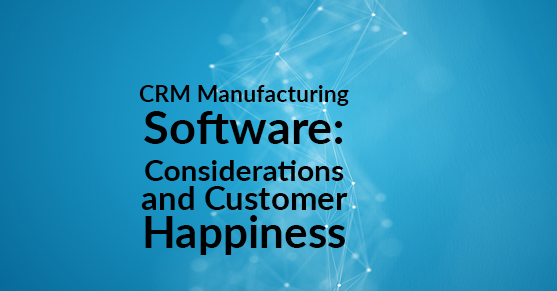The manufacturing industry is unique when it comes to CRM manufacturing software because each organization has specific needs but each also has an overlapping goal – to deliver a great customer experience. So can a ‘box’ solution address your business targets?
In two words, yes – and…
Here’s the thing – manufacturing must have an ERP (enterprise resource planning) solution that handles supply chain management, inventory management, accounting, financial statements, distribution, business intelligence and all the back-end infrastructure to process and account for product manufacturing, distribution and/or final delivery to the customer.
AND – driving relationships with customers is what keeps manufacturers in business. No ERP system can handle tracking customer relationships, like how often is the customer meeting with one of your reps, who are your top clients, why are you losing deals, why are customers not talking or buying, is price or product quality a question, etc. A CRM (Customer Relationship Management) system tracks that information to understand the relationship.
Two key factors that shape relationships with customers include customer service (how many calls? How often? About what?) and product quality (got the wrong thing, late on delivery, defective product). Going further, you need to see how many times this product or shipping vendor has had issues if the product is suffering if it’s happening with increasing frequency… because any one of these things can cause you to lose a customer. Not only do you lose a great customer, but you then lose the business and relationship that comes with it. And the bummer of that is it could happen over something small and correctable if caught and addressed appropriately.
In terms of sales, you need a system to help your representatives track what you’re selling and talking about, as well as having a 360-degree view of the customer experience. Why does that matter? Because you don’t want to get blindsided on anything that could affect your customer and your relationship. You need to track, analyze and report on the information you get so you can make improvements on the product, process and/or relationship.
Three Make-or-Break Factors
A good system must help you do many things but there are three that can truly make-or-break your manufacturing business.
1. Sales Forecasting
When it comes to forecasting for manufacturing, it’s not just about how much business you’re going to close in a certain timeframe, but also about understanding the build-out, supply, and inventory of those products to meet customer demand. So while it’s important that sales forecasting and projected business deals be tracked, it’s just as important to track scheduling, purchasing, ordering, parts, and supplies to meet those projected orders. You need a system to track all that and coordinate projections for strategic action planning or risk chaos in the build-out and unhappy customers.
2. Full 360-Degree View
Having a complete view of the customer relationship is mission-critical to delivering a quality experience. The ideal solution is to integrate your CRM with your ERP so that when account managers meet with prospects and customers, they can see past buying cycles, issues, and obstacles as well as current activities. A fully integrated platform gives you the full view and helps to automate the process entirely.
3. Sales and Marketing Automation
A good CRM will trigger next actions in customer relationships, avoid duplicate entries, streamline communications, foster collaboration with colleagues and help manage all the actions and activities that go into developing and servicing business. You can easily keep track your campaigns, leads and even offer segmentation for more effective messaging.
Such a system means there is more time to focus on other things – more sales or customer service or prospecting. You can redirect staff activities or possibly even tighten the bottom line on your payroll investment.
Functionalities of a Quality CRM
As a quick at-a-glance reference, here are the functionalities you should get with a quality CRM.

According to the Customer Relationship Management Systems (CRM) for Manufacturers Research Study, Manufacturing.net, March 2016, the following is the order of importance to manufacturers when facing these common issues:
- Innovate products more quickly
- Have a better understanding of how our customers use our product/service
- Do a better job categorizing types of customers and responding more quickly to their needs
- Provide better products and service to our customers
A good CRM can help with all of those points. But let’s talk about the proverbial elephant in the room next… cost. Stay tuned as we will discuss the hidden opportunity costs of not using a CRM manufacturing software.

